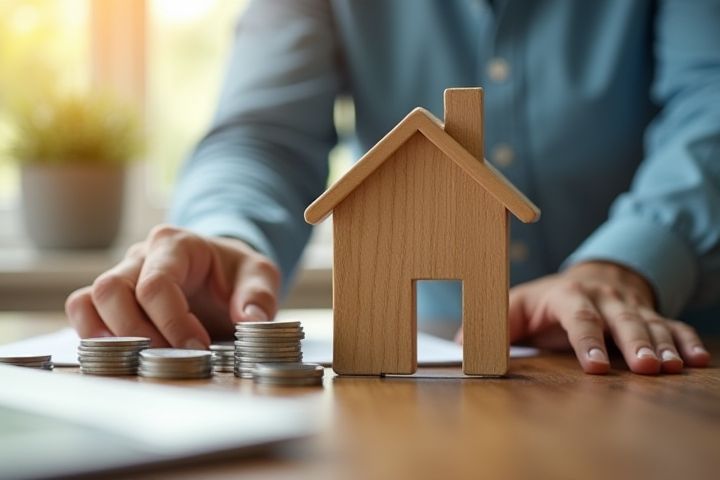
Buying a house during a recession can be advantageous if you approach it strategically. Home prices often decline in economic downturns, allowing you to purchase property at a lower market rate. Interest rates may also decrease, making mortgage financing more affordable and saving you money over time. In addition, owning property can provide a sense of stability and potential long-term appreciation as the economy recovers. Evaluate your financial situation carefully, as job security and cash flow are essential for sustaining homeownership through economic fluctuations.
Is It Worth Buying A House In A Recession
Potential for lower home prices
Investing in real estate during a recession can present opportunities, particularly with potential for lower home prices. Historical data shows that home values often decrease by 10-25% during economic downturns, allowing buyers to secure properties at a discount. Low interest rates frequently accompany recessions, enhancing affordability and enabling you to lock in lower monthly mortgage payments. If you plan to stay in your home long-term, buying during a recession could lead to significant equity growth as the market eventually rebounds.
Increased negotiation power
In a recession, buyers often experience increased negotiation power, allowing them to secure properties at lower prices. For instance, research shows that home prices can drop by as much as 10-20% during economic downturns, presenting a unique opportunity for savvy buyers. With competition decreasing, you can leverage this environment to negotiate favorable terms, such as lower closing costs or seller concessions. This combination of reduced prices and stronger bargaining positions can make purchasing a home during a recession a financially astute move.
Potential for lower interest rates
Purchasing a house during a recession may present an opportunity for you to secure lower interest rates, which can significantly reduce your monthly mortgage payments. When economic downturns occur, central banks often lower interest rates to stimulate growth, making home loans more affordable. Additionally, a recession can lead to decreased home prices, allowing buyers to negotiate better deals and potentially invest in properties at a lower initial cost. However, it is essential to evaluate your financial stability and long-term plans before making such a significant investment during uncertain economic times.
Long-term investment potential
Investing in a house during a recession can present unique opportunities, especially in terms of long-term financial growth. Historical data shows that real estate values tend to recover and appreciate over time, with average annual appreciation rates around 3-5%. Buying in a buyer's market often allows you to acquire a property at a lower price point, with potential appreciation once economic conditions stabilize. Holding onto a home for ten years or more generally yields significant returns, making it a strategic choice for those focused on long-term investment.
Consideration of job security
Buying a house during a recession necessitates careful consideration of job security, as stable employment is crucial for managing mortgage payments. Many individuals may experience job loss or reduced income during economic downturns, which can jeopardize their ability to meet financial obligations. A strong job market prior to purchasing can offer more assurance, but it's vital to assess your industry's stability and potential for future growth. Evaluating your savings and having a solid emergency fund can further mitigate risks, ensuring that you can maintain your home despite economic fluctuations.
Availability of foreclosed properties
During a recession, the availability of foreclosed properties typically increases, presenting a unique opportunity for potential homebuyers. Many banks and financial institutions offload these properties at significantly reduced prices, which can result in substantial savings for you. Foreclosed homes often require some renovation, but these properties can be transformed into valuable investments with the right improvements. By purchasing a home during a recession, you may also benefit from a less competitive market environment, allowing for better negotiation terms.
Rental income opportunities
Investing in a house during a recession can be advantageous, particularly if you consider potential rental income. With the national average rent in the U.S. rising to approximately $2,000 per month in 2023, owning property can provide a steady cash flow. Market conditions may allow you to purchase real estate at a lower price, increasing your return on investment when rental demand rebounds. Additionally, with interest rates potentially stabilizing, your mortgage payments could remain manageable, enhancing your overall financial strategy.
Lower competition from other buyers
Buying a house during a recession can be advantageous due to lower competition among buyers, which can lead to better deals and negotiations. In times of economic downturn, many potential buyers may hesitate, resulting in fewer bidding wars and allowing you to choose from a wider array of properties. Home prices may stabilize or even decrease, providing an opportunity to invest at a lower entry point. If you are financially secure and can navigate the market wisely, purchasing a home during a recession could yield long-term benefits and equity growth over time.
Importance of emergency savings
Buying a house during a recession presents unique financial challenges, making the importance of emergency savings more critical than ever. You should have at least three to six months' worth of living expenses saved to cushion against job loss or unexpected repairs. With the economic uncertainty, a robust emergency fund can provide the financial security needed to manage mortgage payments without stress. Ultimately, maintaining strong savings allows you to navigate homeownership risks while safeguarding your future financial stability.
Evaluating personal financial stability
Evaluating personal financial stability during a recession is crucial before purchasing a house. Carefully assess your current employment status, savings, and existing debt; maintaining a significant emergency fund is ideal--consider aiming for at least three to six months of living expenses. Your credit score, which ideally should be above 700 for favorable mortgage rates, will also play a critical role in financing options available to you. Analyzing these elements can help determine if investing in property aligns with your long-term financial goals during uncertain economic times.
